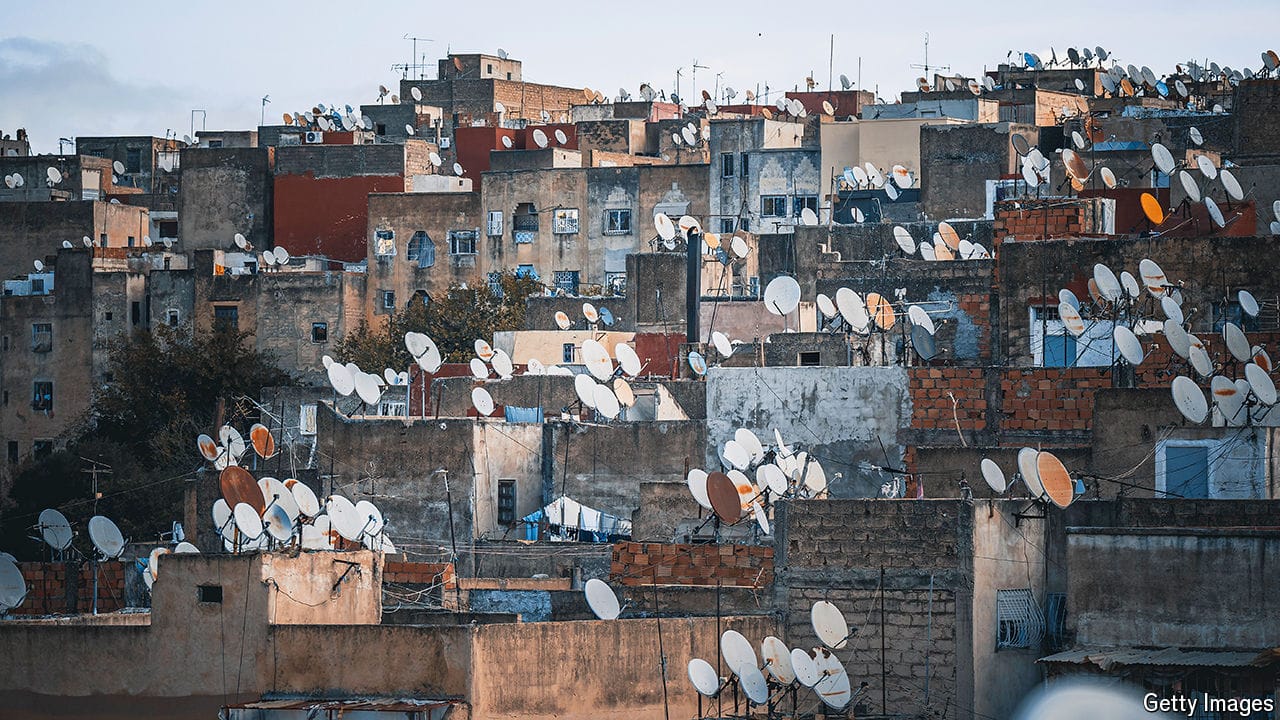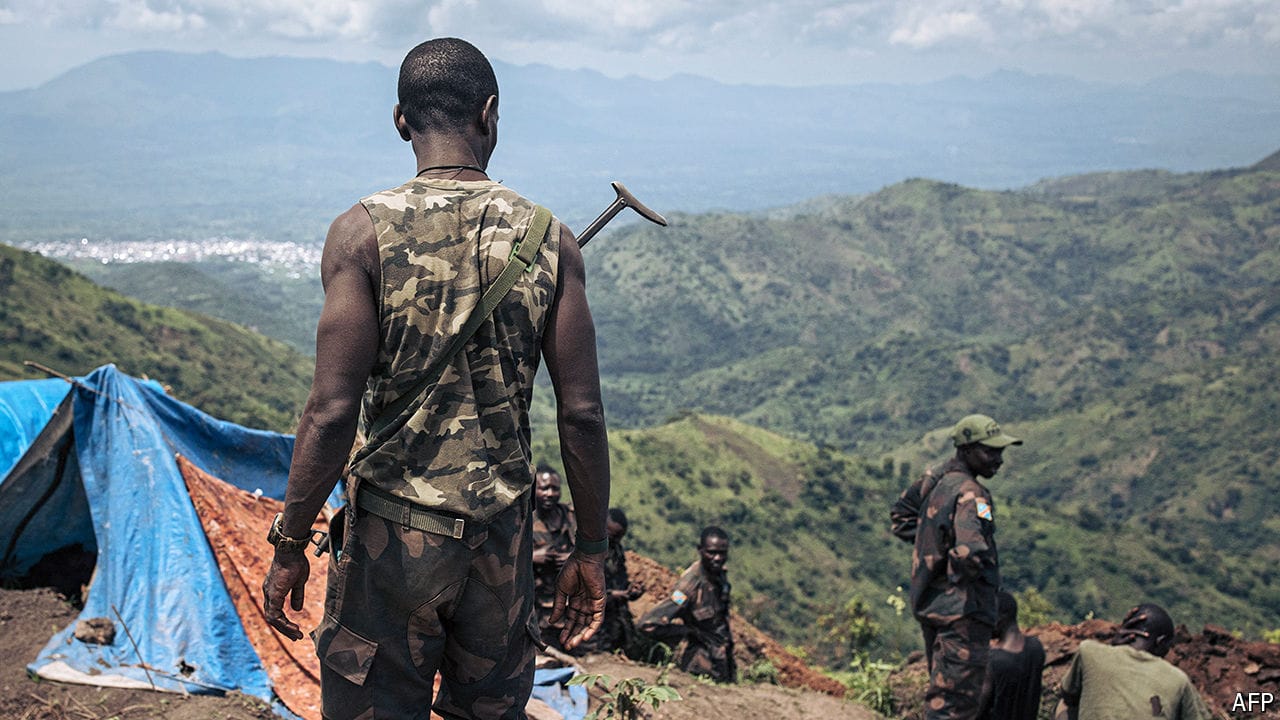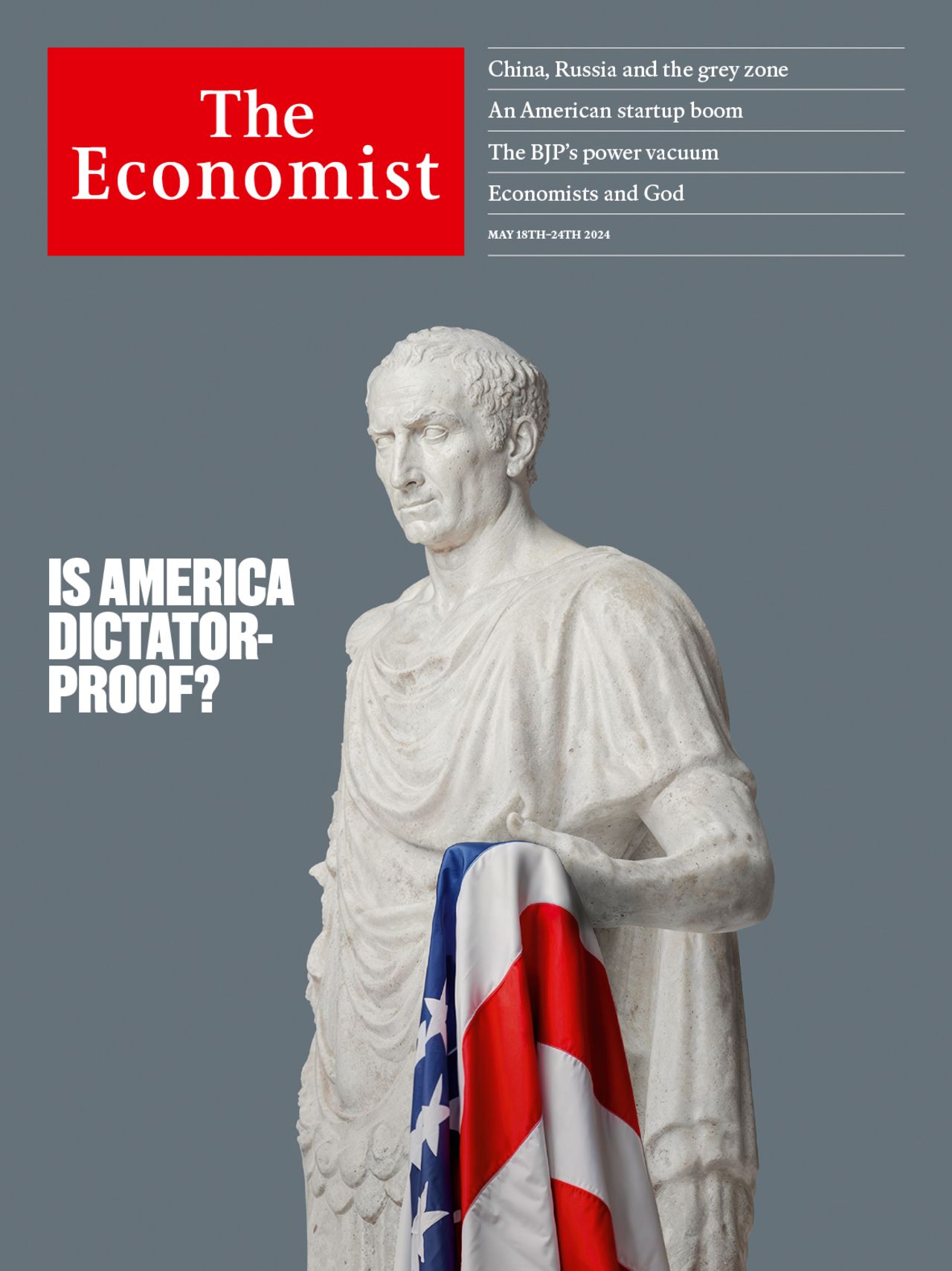How a Russia-linked mine may keep the ANC in power
South Africa’s ruling party was broke a few months ago, but its fortunes are changing

JUST A FEW months ago the African National Congress (ANC) had the bailiff at its door. A court had ordered the seizure of assets from its headquarters over an unpaid 102m rand ($5.6m) bill for campaign posters produced for the previous election in 2019. It was not the first time of late that courts had been asked to force the ANC to pay up. In 2022 employees of the party, which has ruled South Africa for 30 years, sued over unpaid salaries. It was so broke that it said it was trying to find lawyers willing to work pro bono on its case.
The latest cash crunch could not have been more dangerously timed. On May 29th the ANC will face its toughest general election since Nelson Mandela won power in 1994. Pollsters reckon its share of the national vote will fall below 50%, with recent surveys putting its support in the mid-40s. The higher its share, the more able the ANC will be to form a coalition with small parties in which it is dominant. A poorer showing would force it to share power with either the liberal opposition Democratic Alliance or with radical populists such as the Economic Freedom Fighters.
Explore more
This article appeared in the Middle East & Africa section of the print edition under the headline “Russia, money and South Africa’s election”
More from Middle East and Africa

Israeli retaliation in Lebanon seems inevitable
But it still wants to avoid all-out war against Hizbullah

Why the AI revolution is leaving Africa behind
Large infrastructure gaps are creating a new digital divide

Rwandan soldiers may outnumber M23 rebels in Congo
The prospect of dislodging the rebels is becoming dimmer
Bibi Netanyahu offered spectacle over substance in America
His fourth address to Congress was historic, but held few answers for Israelis
Israel and the Houthis trade bombs and bluster
For now, though, neither side is a strategic threat to the other
The world court says Israel’s occupation is illegal
But will the International Court of Justice’s ruling have any effect?
